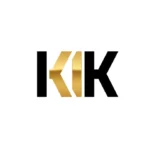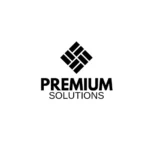Calculate an estimate of your project costs directly online
- Overview quotations
- Cost calculation for my website
- Cost calculation: SEO/Ads/MGB/Speedup/Technical
- Contact us for a personal App or AI Agent
- Cost calculation for an e-commerce shop
- Contact us for branding
- Cost calculation for Social Media Management
- Cost calculation for Graphic Design
- Cost calculation for Copywriting & Translations
- Cost calculation for Photo- & Videography
Some random weekly posted topics
GSAP
The Hidden Power Behind Successful Websites
PageSpeed Optimization
Understanding the Engine Behind Your Website's Speed
When someone clicks on your website, their experience begins long before they see your logo or read your content. It starts in milliseconds, with their browser requesting your site’s data and rendering it on their screen. The speed at which this happens determines whether they’ll stay, read, click or bounce away.
That’s where PageSpeed Insights comes in. Created by Google, this tool doesn’t just hand out a score, it reveals how fast, stable, and responsive your site really is, based on real-world data and technical simulations. For website owners and marketers alike, this is not just technical information; it’s the foundation of digital credibility.
What Really Impacts PageSpeed Insights
Core Web Vitals: The Metrics That Matter Most
Google analyzes your site’s Core Web Vitals: three critical metrics tied to user experience, and these form the foundation of your performance score.
Largest Contentful Paint (LCP) shows how fast meaningful content loads.
Cumulative Layout Shift (CLS) reveals whether your layout shifts during loading.
Interaction to Next Paint (INP) measures responsiveness to user input.
These metrics don’t just evaluate your page, they reflect real user frustration or satisfaction.
Common Technical Bottlenecks
What slows a site down often isn’t obvious. Bloated JavaScript, oversized images, unoptimized fonts, and render-blocking CSS all delay how quickly a user sees or interacts with your page. It’s not just your code that causes these issues, it’s how you organize it. Overloaded JavaScript, massive image files, fonts that load late, and stylesheets that delay rendering are some of the invisible bottlenecks that quietly kill performance.
These issues aren’t visual, but their impact is.
The Art and Science of PageSpeed Optimization in Web Development
The Importance of Prioritized Loading
Smart developers structure their websites so that critical content loads first. This includes main images, navigation, and calls to action, anything that lets the user begin engaging right away.
Eliminating Render-Blocking Resources
CSS and JavaScript can halt rendering while they load. By deferring non-critical scripts and loading assets asynchronously, a developer can drastically reduce this delay without sacrificing functionality.
Smarter Image Handling
Image optimization is one of the biggest wins in performance. Switching to next-gen formats like WebP, using proper scaling, and applying lazy loading ensures that only visible images load, saving precious seconds.
Why Speed Is One of the Most Powerful Tools
PageSpeed’s Impact on Bounce Rates
A delay of just two seconds can nearly double your bounce rate. According to Google, as page load time increases from one to five seconds, the chance of a user leaving jumps by 90%. That’s traffic, and conversions, lost to delay.
SEO Rankings and Performance
Speed is now a ranking factor. Even if your keywords are strong, a slow page can push your ranking down. Faster competitors will appear first, simply because Google trusts their ability to serve content quickly.
Advertising Performance and Cost
Landing page speed affects your Google Ads quality score. A slow site means higher costs per click and lower conversion rates. Optimized pages not only perform better, they reduce your ad spend.
How PageSpeed Optimization Will Evolve
Future Metrics and Chatbot SEO
Search is moving from traditional keywords to behavioral and conversational analysis. Voice assistants, AI bots, and mobile-first indexing require clean, high-performing websites that can be quickly crawled and understood.
This is why investing in sustainable performance is vital. It’s not about chasing a perfect score but building an infrastructure that supports the needs of today’s users—and tomorrow’s technologies.
Preparing for Tomorrow’s Expectations
With rising reliance on real-time performance and interactive content, websites will be judged by how well they balance aesthetics with speed. Developers and marketers will need to work hand-in-hand more than ever.
What Happens When You Ignore PageSpeed
Silent Traffic Loss and Wasted Budget
Slow websites lose visibility, trust, and ROI. Even well-designed brands with great marketing fail to gain traction when the underlying performance isn’t there.
The Risk to Reputation
Speed builds credibility. A slow website today signals a lack of reliability. In a competitive digital space, every second lost is a lost customer and possibly a lost brand opportunity.
Final Thoughts: Don’t Just Build a Site, Build a Fast One
People expect answers in under a second and search engines aim to predict those needs before they’re asked, performance is not a backend issue, it’s a business priority. PageSpeed optimization is where web development meets marketing, branding, and customer trust. It’s the invisible force behind visibility, conversion, and relevance.
At TSI Digital Solution, we don’t just create beautiful digital experiences, we make sure they’re fast, responsive, and built to last. That’s how we help businesses not just show up, but stand out.
Frequently Asked Questions (FAQ)
What is PageSpeed Insights and why is it important?
PageSpeed Insights is a Google tool that analyzes your website’s real-world speed, stability, and responsiveness. It doesn’t just give a score, it reveals the foundation of your digital credibility by showing how fast users can actually interact with your site, which directly impacts whether they stay or leave.
What are Core Web Vitals and which metrics matter most?
Core Web Vitals are three critical user experience metrics that form the foundation of your PageSpeed score: Largest Contentful Paint (LCP) measures how fast main content loads; Cumulative Layout Shift (CLS) checks if your layout shifts during loading; and Interaction to Next Paint (INP) measures responsiveness to user input. These reflect real user frustration or satisfaction.
How does page speed affect my bounce rate and SEO?
A delay of just two seconds can nearly double your bounce rate. As load time increases from one to five seconds, the chance of a user leaving jumps by 90%. Speed is also a direct Google ranking factor, slower sites can be outranked by faster competitors, even with strong keywords.
What are common technical issues that slow down a website?
Common bottlenecks include bloated JavaScript, oversized images, unoptimized fonts, and render-blocking CSS. These invisible delays are often caused by how assets are organized – like massive image files, late-loading fonts, or stylesheets that halt rendering – which quietly kill performance.
How does page speed impact advertising costs and performance?
Landing page speed affects your Google Ads Quality Score. A slow site leads to higher costs per click and lower conversion rates. Optimized pages improve ad performance and reduce ad spend, making speed a direct factor in your advertising ROI.
Ready to speed up your site and boost results?
Let TSI Digital Solution turn every click into a conversion: fast, smooth, and built for tomorrow.
Contact TSI Digital Solution now.
TSI Digital Solution
(Brand of PT Tripple SoRa Indonesia)
Jl. Sunset Road No.815 Seminyak, Kuta, Badung, Bali – 80361, Indonesia
TSI Digital Solution
(Brand of PT Tripple SoRa Indonesia)
Jl. Sunset Road No.815 Seminyak, Kuta, Badung, Bali – 80361, Indonesia
Copyright © 2022 -
TSI Digital Solution | All rights reserved.







2 Comments
This was beautiful Admin. Thank you for your reflections.
Thx